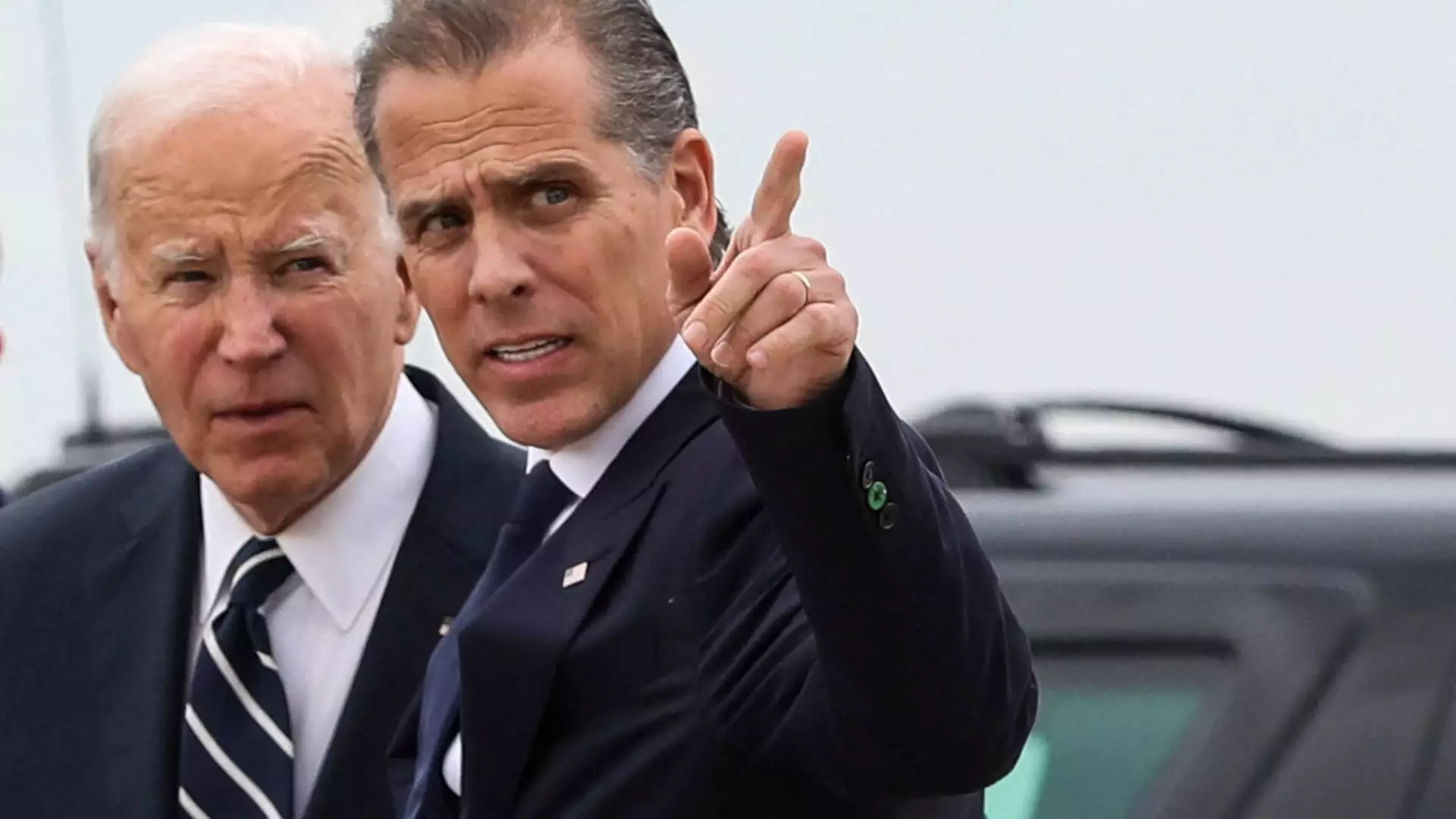In today’s political landscape, the narratives surrounding presidential performance are often sanitized, carefully curated to project strength and resilience. Yet, beneath this veneer, the human frailty of leaders remains largely concealed, raising troubling questions about the standards we set for those entrusted with national leadership. When Hunter Biden’s candid revelation surfaced—that President Joe Biden was possibly impaired during a critical debate due to prescription medication—it served as a mirror reflecting the uncomfortable truth: even those in the highest offices are vulnerable, fallible, and sometimes compromised. This incident challenges the long-held belief that age and health should either be ignored or unquestioned when evaluating presidential fitness. Instead, it compels us to reconsider what genuine competence entails—beyond superficial appearances and campaign rhetoric.
The portrayal of leadership as a stoic, untouchable ideal is fundamentally flawed. Human beings, regardless of social status or political office, are subject to physical and mental limitations. A president battling persistent fatigue, age-related decline, or medication side effects is not necessarily unfit; however, the issue arises when these struggles cast doubt on their ability to perform their duties effectively. It’s vital to understand that vulnerability does not equate to weakness but signifies the human realities that leaders must navigate. Ignoring these realities only risks perpetuating an illusion of infallibility that can have dangerous consequences for a functioning democracy.
Media Narratives and the Politics of Perception
The media plays a pivotal role in shaping the public’s perception of presidential competence. When Biden’s physical and cognitive states come under scrutiny, the coverage is often colored by partisan angles. Supporters may dismiss concerns, emphasizing resilience and experience, while critics seize on any slip to undermine credibility. Hunter Biden’s remarks about Ambien, especially coming from someone closely related to the president, exacerbate this polarized narrative. The revelation feeds into the growing suspicion that the Biden administration might be hiding uncomfortable truths, feeding into a broader narrative of secrecy and cover-up that feeds into partisan agendas.
The invocation of the Fifth Amendment by administration officials during investigations is another reflection of the toxic politicization of health and competence issues. When individuals with firsthand knowledge choose silence over transparency, it neither reassures nor inspires confidence. Instead, it feeds the narrative that there are uncomfortable secrets lurking behind closed doors. Such moments undermine the integrity of public discourse, fostering mistrust and skepticism about whether the leadership truly possesses the mental clarity necessary to govern effectively.
The Significance of Age, Health, and Governance
While age alone should not disqualify someone from serving, dismissing concerns about health and mental acuity undermines the seriousness with which we evaluate governance capacity. The debate over Biden’s fitness is more than a personal issue; it’s a public health and safety concern that directly impacts national security and policy stability. When leaders appear visibly diminished or exhibit signs of mental decline, the risk to democratic stability increases. It’s not about ageism but about ensuring that those at the helm are physically and mentally prepared to make critical decisions under immense pressure.
On the broader political spectrum, a fair and balanced approach is essential. We must advocate for accountability and transparency, not just political expedience. Leaders should be held to high standards, but those standards must be rooted in fairness and medical integrity, not partisan double standards. Societies that overlook the health and well-being of their leaders risk delegitimizing their governance, confusing strength with superficial bravado. Our democracy warrants honesty about the limits of human capacity, especially when the stakes are high and the consequences of misjudgment can be profound.
The Danger of Cover-Ups and Evasion
The reluctance of high-level officials to answer questions about Biden’s cognitive state signifies a troubling tendency toward concealment. Invoking the Fifth Amendment, while a legal right, hints at a deeper discomfort with transparency. Such evasions create a dangerous precedent: if those closest to the leader cannot speak openly, how can the public be assured of the leader’s true condition? It fosters a climate of suspicion that erodes trust in the democratic process and invites others to question the integrity of political institutions.
This pattern is not new; it echoes past investigations into the actions of leaders during crises. Political elites often prioritize shielding their own, skeptical of oversight and accountability. Such tactics are compounded by a media environment increasingly polarized along ideological lines, making genuine oversight nearly impossible. This cycle of secrecy weakens the very foundations of democratic accountability and fuels the distrust that increasingly characterizes modern politics.
Ultimately, the revelations surrounding President Biden’s debate performance serve as a stark reminder of the importance of genuine transparency and accountability in leadership. Our democracy functions best when leaders are held to high standards—not for the purpose of smear campaigns but to ensure the collective safety and well-being of the nation. Acknowledging human vulnerability, rather than hiding it, fosters a healthier political culture grounded in honesty and humility. The challenge for society is to demand unwavering integrity from those in power, not in spite of their age or health, but with a clear-eyed understanding of what effective leadership entails in the modern era. Only then can we move beyond superficial narratives and build a political environment rooted in genuine trust and accountability.


Leave a Reply